Rachael Meager
Toward a Taxonomy of Trust for Probabilistic Machine Learning
Dec 05, 2021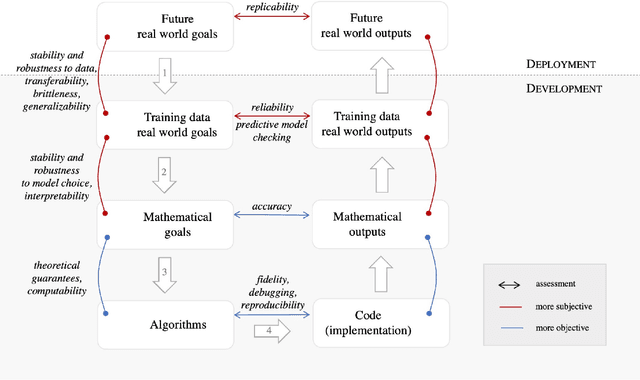
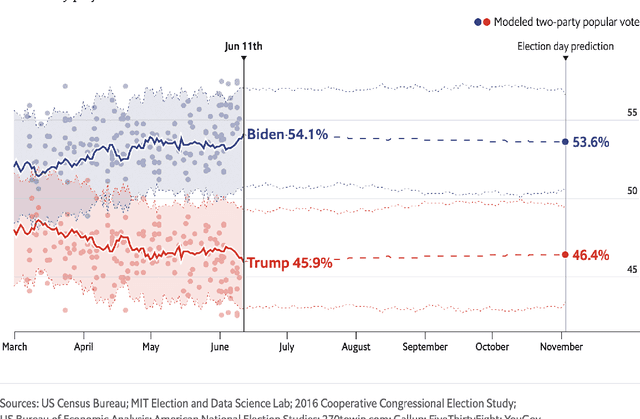
Abstract:Probabilistic machine learning increasingly informs critical decisions in medicine, economics, politics, and beyond. We need evidence to support that the resulting decisions are well-founded. To aid development of trust in these decisions, we develop a taxonomy delineating where trust in an analysis can break down: (1) in the translation of real-world goals to goals on a particular set of available training data, (2) in the translation of abstract goals on the training data to a concrete mathematical problem, (3) in the use of an algorithm to solve the stated mathematical problem, and (4) in the use of a particular code implementation of the chosen algorithm. We detail how trust can fail at each step and illustrate our taxonomy with two case studies: an analysis of the efficacy of microcredit and The Economist's predictions of the 2020 US presidential election. Finally, we describe a wide variety of methods that can be used to increase trust at each step of our taxonomy. The use of our taxonomy highlights steps where existing research work on trust tends to concentrate and also steps where establishing trust is particularly challenging.
Fast robustness quantification with variational Bayes
Jun 23, 2016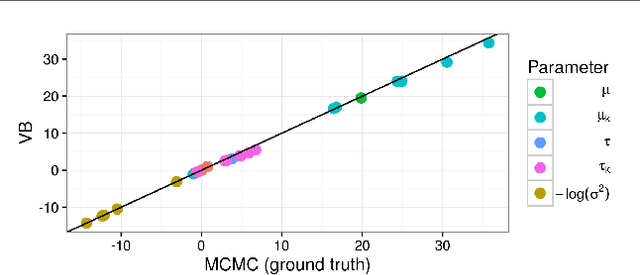
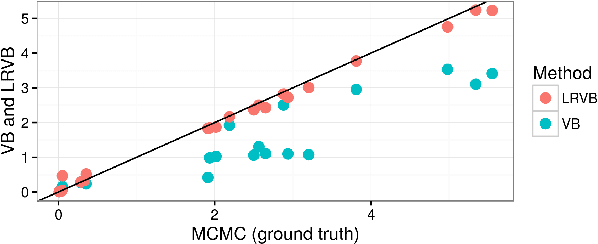
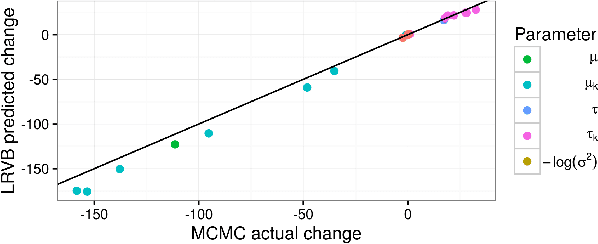
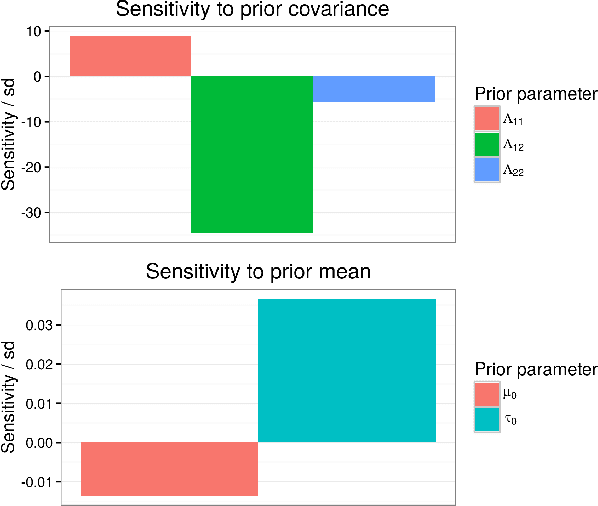
Abstract:Bayesian hierarchical models are increasing popular in economics. When using hierarchical models, it is useful not only to calculate posterior expectations, but also to measure the robustness of these expectations to reasonable alternative prior choices. We use variational Bayes and linear response methods to provide fast, accurate posterior means and robustness measures with an application to measuring the effectiveness of microcredit in the developing world.
 Add to Chrome
Add to Chrome Add to Firefox
Add to Firefox Add to Edge
Add to Edge